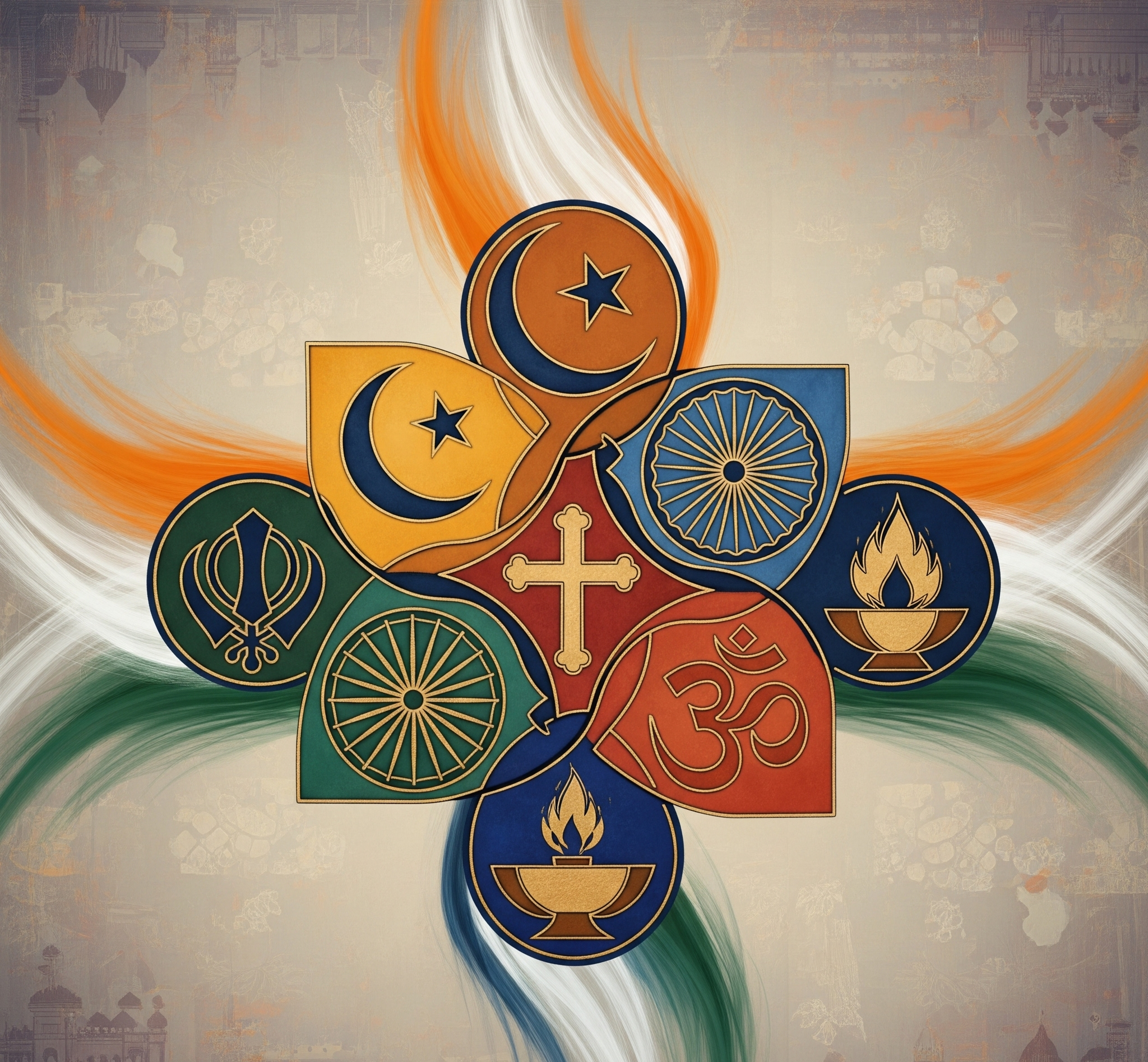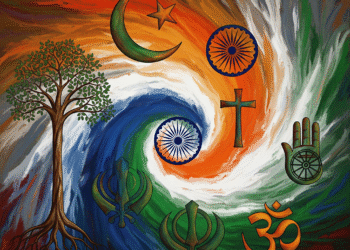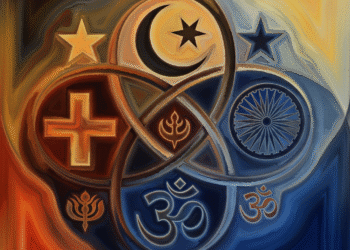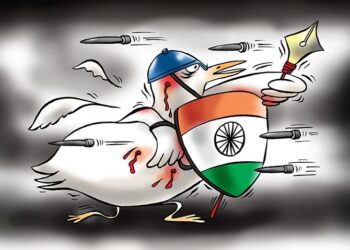Why should the Hindus want to emulate what they are never tired of criticizing Muslims for? How would Hindu orthodoxy and fundamentalism be any better than the Islamist versions of them? Would “Hindutva Terrorism” sound any better than “Islamist Terrorism”? The Hindu radicalism, which is an aggressive pursuit of the very political Hindutva project, is a “reaction”, some would say. Alright. So if “they” succeed in making you react to become more like “them” in terms of what you had always hated in and about “them”, whose victory is it? If your “enemy” turns you into what in the “enemy” formed the very basis of your fight against the “enemy”, the very thing you have been fighting against, who wins? If you are forced to turn into a “monster” to win the war against the “monster”, the “monster” wins despite losing because the monstrosity, the very thing that made it the “monster”, survives in you, refreshed and reinvigorated. But that’s largely a moral argument, you might think. Let’s view it from a more “practical” standpoint.
If Hindus do not want to be “secular” any longer, by which one could mean only one thing — the complete dominance and subjugation of religious minorities with a hegemonic and oppressive dominance of social, economic and political space by the Hindus — would that solve any problem we are currently facing as a nation and would it make the nation better and its people better off? It’s not hard to see the answer, but for those who might readily want to say that in those circumstances India would be better off at least for Hindu Indians because India would then be a nation of the Hindus and for the Hindus, which is also the dreamy vision that has been sold by the propagators and supporters of Hindutva.
How would India as a “Hindu nation” do better than India as a nation for all Indians? How can a nation with a divided society with the monopoly of one religious community and the relegation of other communities to second-class status do better as a nation than India as a united nation with a single national identity? Can the suppression of large sections of people aid the development and prosperity of a nation? Has it ever worked anywhere for any length of time? The very conception of a nation carries with it the notion of “nationality”, which is the national identity of a citizen and having one class of citizens lord over other classes of citizens is contrary to the very idea of national citizenship, or even a nation, for that matter. And such an approach, practically speaking, can only cause simmering resentment among large sections of people, which can, if left unattended for too long, can spark a civil war. So pursuing Hindutva with the objective of turning India into a Hindu nation can have no happy consequences by any stretch of imagination. But an even more important question is, why do we have to? What exactly is the problem that India as a “Hindu nation” would solve? What is this poisonous potion a remedy to?
The fact is that we do not have a problem that is connected to our being a secular nation or can be solved by our turning into a “Hindu nation”. On the contrary, we have done very well as a secular, democratic republic, which has, if anything, enhanced our international reputation as a truly inclusive democracy despite such diversity of cultures, religions and languages as is seen nowhere else in the world. As a democracy, we have been a wonder that few thought possible at the time of our independence. Yes, we did falter at times, but we quickly course-corrected, maintaining our credential as a constitutional democracy throughout.
Problems such as extremism and Islamist terrorism have little to do with Indian secularism per se, for we have had all kinds of extremism, stemming from different socio-political situations in different parts of the country, including North East, Punjab and Kashmir. Yes, there have been communal riots, too. Again, those too have been due to inadept handling of political situations. And on each of those occasions, the failure as well as the complicity of the state machinery has been fairly evident. Those were the instances when we as a nation momentarily veered from our secular character. But in the large span of seventy-five years, such instances — even though avoidable in many cases — have been few and far between, and do not define India as a nation, much less undermine our secularism.
However, the current push for turning India into a “Hindu nation” by the adherents of Hindutva, having yielded rich political dividends, is definitely making a dent in our credentials as an inclusive nation. Of course, we can ignore what the international community says or things about us so long as we are sure we are on the right path forward. Are we?
The only complaint that I have repeatedly heard is “Muslim appeasement” by the government for “vote bank politics”. Truth be told, this is a meaningless rant, for there is no such thing as “appeasement politics” because politics is nothing but “appeasement”. How is “Muslim appeasement” or “minority appeasement” any better than “Hindu appeasement” or “majority appeasement”? It can just as well be “Dalit appeasement”, or “Yadav appeasement”, or even “feminist appeasement” or “women appeasement”, or any other “appeasement”, depending upon what serves the politics of the day best. So “appeasement” as a political tool itself is not a problem as long as it does not involve a deliberate suppression of another community or class of people.
…to be continued
Originally published as part of my monthly column Street Lawyer in the October 2022 Issue of Lawyers Update (Vol XXVIII, Part 10).






